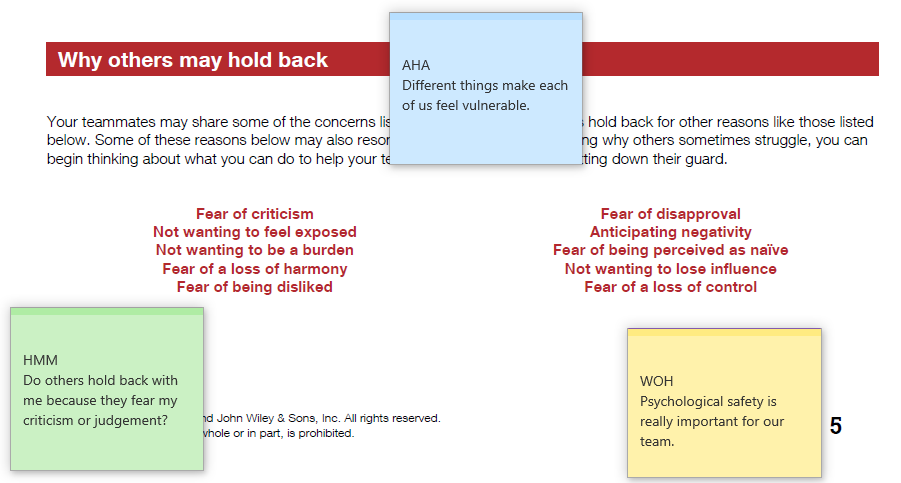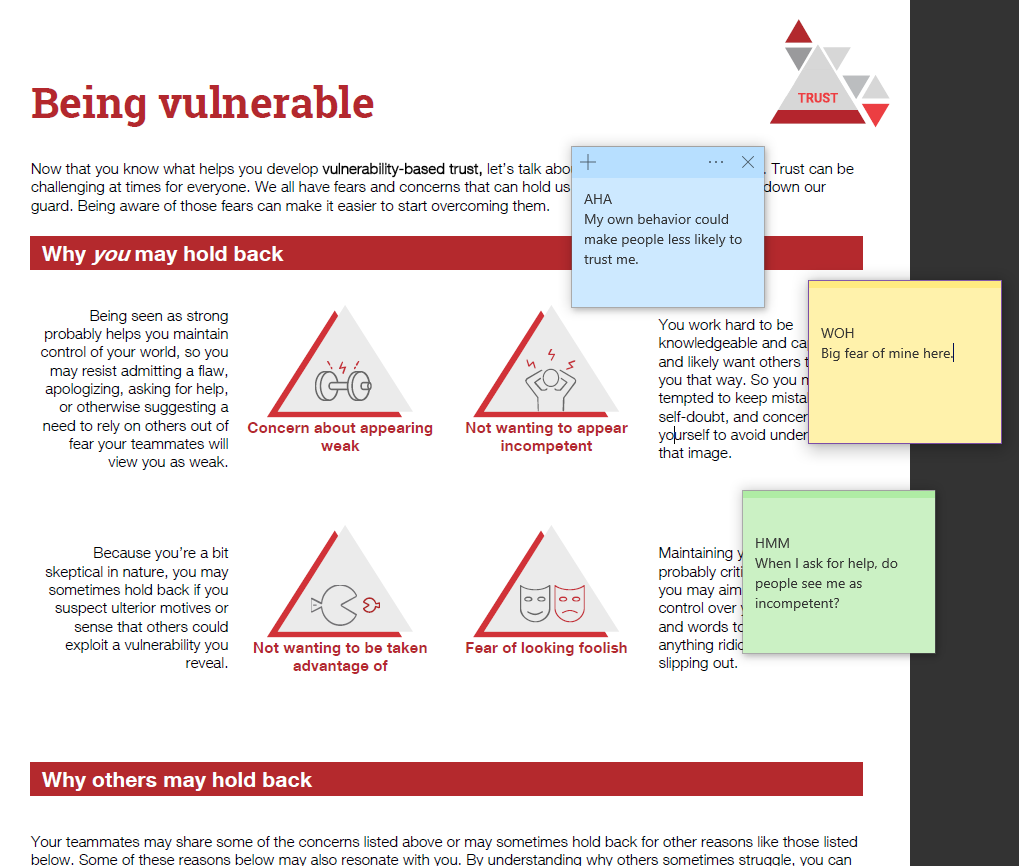Pre-session work for The Five Behaviors Personal Development
Pre-session work for The Five Behaviors Personal Development
Debriefing The Five Behaviors Personal Development profile is pretty straight-forward. The report is easily understood by participants. The strength of the training really comes from exploring all the concepts in the profile.
To get participants to go beyond a surface reading of their reports, try this exercise as either pre-work for the session (if they get their reports early) or during the session. The additional time and privacy available for a person to do this as pre-work makes that option a bit more effective.
Tip: You can adjust settings in EPIC so when you email someone their report, you give them only the sections of the report you want. So if you're only covering Trust you can send them just that section before your session.

Ask each participant to consider their reactions as they read their report and to record the following:
AHA: These are reactions that elicit an aha or of course reaction. They can be something they knew, but just hadn't expressed or understood in quite the way as the report presents.
HMM: Some statements will make a participant stop and wonder. It might be about the accuracy of the statement or it could be a question that occurs to them while reading.
WOH: This is a reaction that stops the reader in their tracks. It's an insight they really want to remember and perhaps share with their team(s).
Using different colored post-its or pens makes this easier.
Participants can use these notes during discussions outlined in The Five Behaviors Facilitation Kit. That discussion will be all the richer for this prior review of their own reports.
Afterward you can ask people to post their AHA, WOH, and HMM post-its to a shared board. (They can re-write the notes to make them more anonymous or for clarity.) Then as a follow-up to the session, you can send them an image of each of these boards with a reminder to continue incorporating what they learned into their daily interactions with others.
You can also encourage learners to ask their colleagues or supervisor for reactions to their notes. The learner with the profile shown in the images above might benefit from talking to their colleagues about vulnerability-based trust. How are they viewed when they ask questions or admit to a mistake? Does it match how they fear they will be received? Or they might directly ask teammates the question: "When and how do I make you feel judged or criticized?"
This notetaking exercise is really about asking the learner to slow down and digest — even challenge — what they are reading about themselves.


